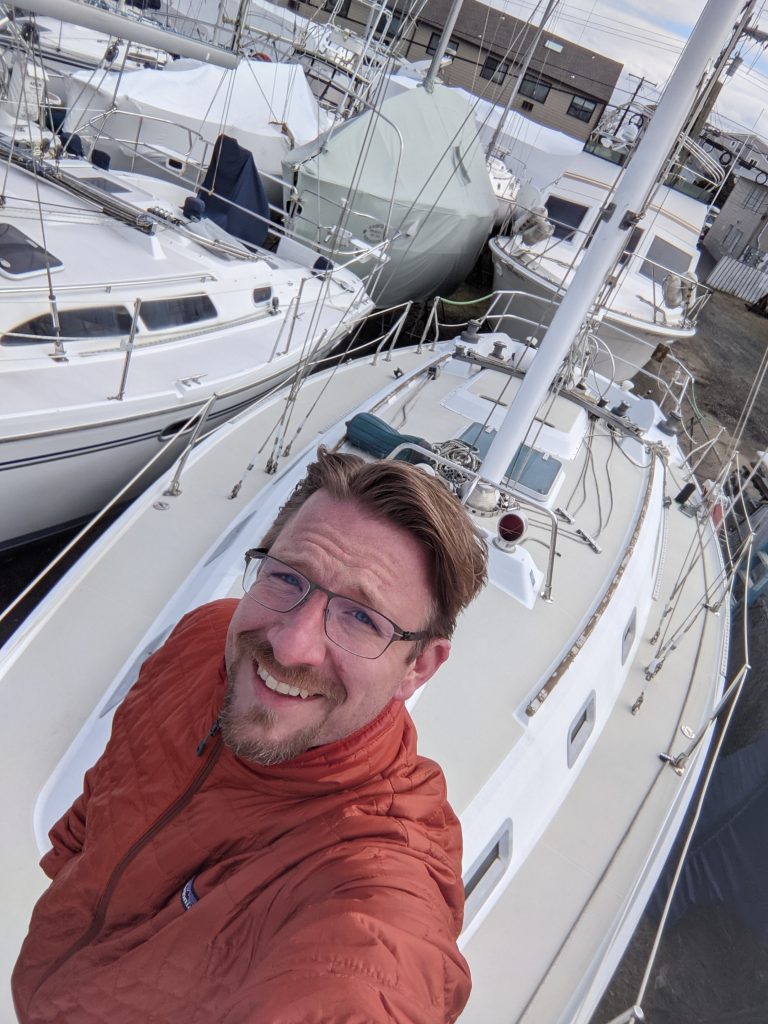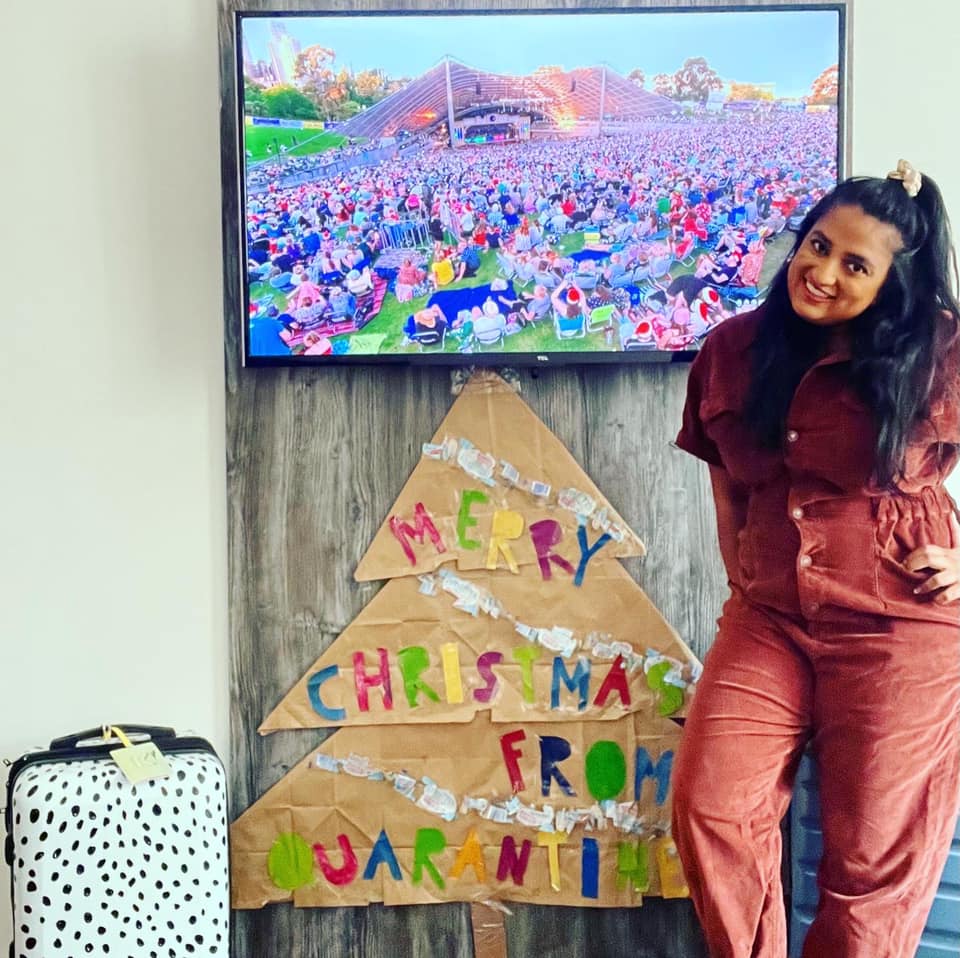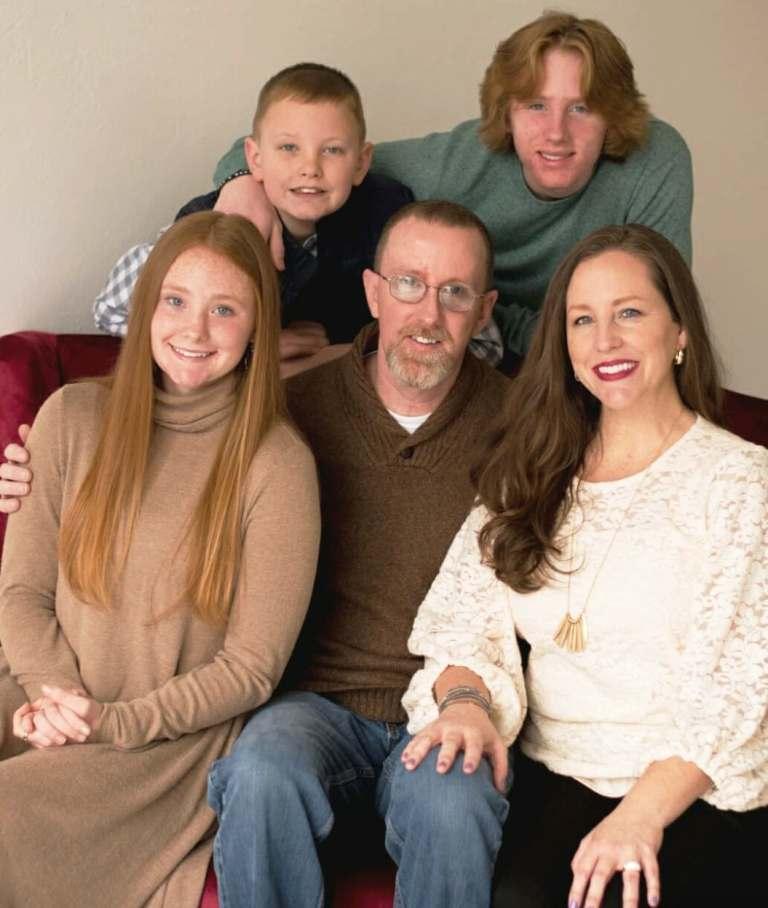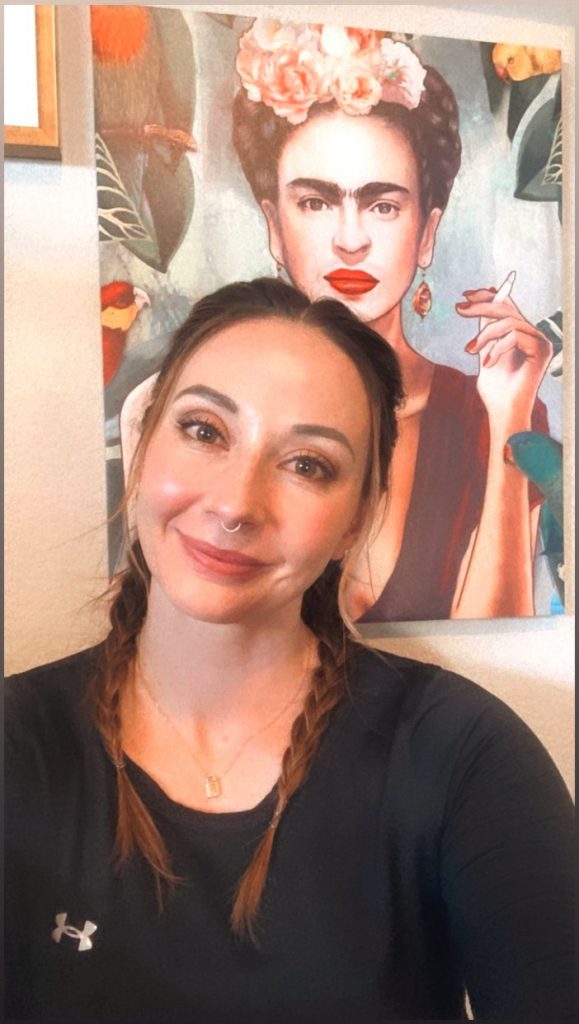Until March, 2021, John Carpenter and I had enjoyed literally a passing acquaintance. He and I often log miles at the same park in Choctaw and have a few local friends in common, so we have exchanged plenty of runners’ waves over the past few years. It took pandemic for us to finally stop and introduce ourselves (from a distance). Vaccines had barely started in Oklahoma, and things were still tense socially from, well, from everything. I asked whether he would be interested in participating in this interview project. He quickly agreed, laughing and shrugging that people might not like what he has to say. I was instantly hooked.
John Carpenter is a true child of the sixties and doesn’t mind swimming against the current of popular opinion. But he hardly strikes me as being rebellious for rebelliousness’ sake; he is thoughtful and keeps a mellow, almost Buddhist force field around himself, so that even as he is acknowledging conflict or telling a true and terrible story from history, he emits calm. He knows how to flow with changing times, and that quality seems to have helped him thrive during last year’s ongoing tumult. This might be a product of his yoga training, or it could just be from a full, well lived lifetime of ups and downs. He is a vigilant observer of events and human nature, so talking to him about his pandemic experience flowered into a fascinating look backwards into the preceding decades, the life and history that made him who he is, someone who took a global pandemic pretty much in stride and stayed healthy and happy, though still opinionated, the entire time. The more I learned, the more questions I had and the harder it was for me to focus on just this project. Enjoy!
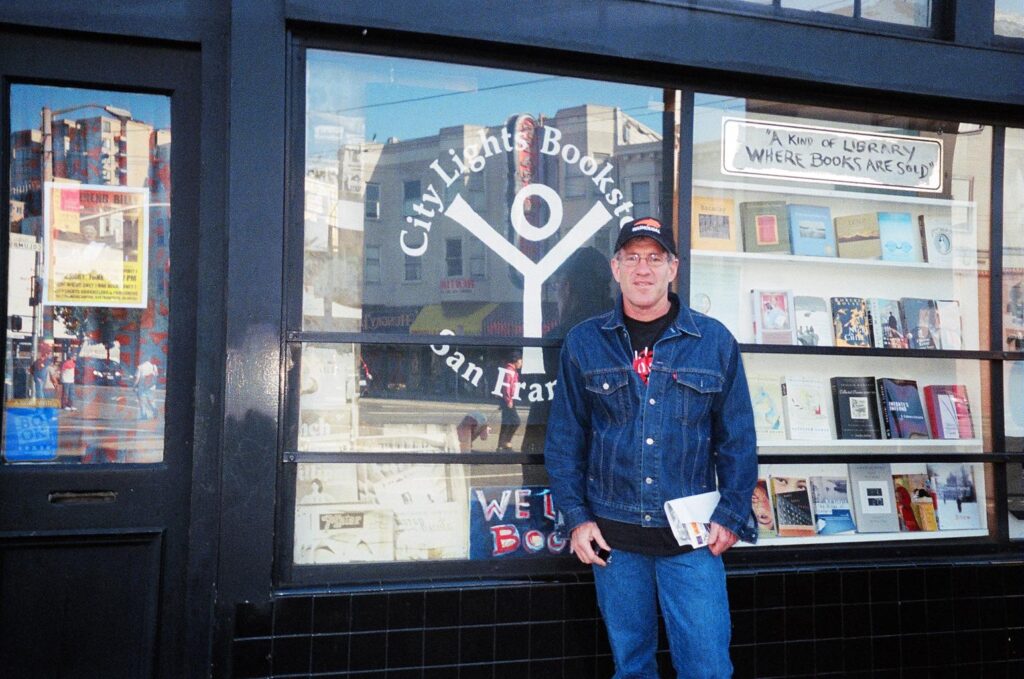
In late 2019 John had seen news reports about a new contagious virus, but it was not yet in the United States. Having seen swine flu and other similar outbreaks in years past, he was not too worried. In early March, 2020, he and his wife of 41 years, Jo, were in Tulsa, Oklahoma, at a book reading by author Luc Sante. Afterwards they shared dinner at a Mexican restaurant. That evening out was their last normal-feeling event for a long time. Then, on March 12, 2020, when a basketball player tested positive for the novel corona virus and emptied the infamous Thunder basketball game on live television, John knew things were serious.
When shutdowns happened, John and Jo had no trouble staying well supplied at home. As he put it, they had “been through too many ice storms in which people panic shopped,” and happily, they never lacked for toilet paper. Well into retirement, their livelihood was unaffected by shutdowns, but John was accustomed to teaching a regular spin class and many yoga classes at a local gym and the YMCA, all of which came to an abrupt halt when the virus hit Oklahoma.
The Carpenters’ first masks were basic medical masks which he purchased at Crest Foods in Midwest City. He later found more online and had no complaints wearing them for the duration of the pandemic.
Daily life changed in noticeable but manageable ways during pandemic. No longer free to teach fitness classes at the gym or YMCA, John transitioned to posting yoga videos on YouTube for his friends and classes. He also kept up his boxing practice by replacing in-person classes with home workouts on a punching bag hung from a tree, plus exercising with free weights. He ran at the park a little more often and found more time than ever for reading books. These were good changes, he felt, as was spending more time with his wife. They developed a ritual of taking long walks together in beautiful outdoor spaces like local parks, Scissortail, in Oklahoma City, or a spot in Edmond they both love.
Entertainment at home included some movies and watching old episodes of The Office. The Carpenters did not seem to need new hobbies, just a shift and refocus of what they already enjoyed. He said that during shutdown, he realized he had been teaching too many classes and decided to cut back greatly once things returned to normal. He has sorely missed attending live music as well as the annual Metropolitan Library System book sale, which he had previously not missed in forty years!
John never contracted the virus, and today he feels great, both physically and mentally. He added that he believes wearing a mask all year prevented him from even catching a cold. Unfortunately, his brother did contract covid-19 and was seriously ill for some time. He lost a significant amount of weight and was nearly hospitalized. Thankfully, after a few weeks of fighting it, he recovered well.
Unsurprisingly, John had a neighborly view of “essential workers” and said he made a point to thank people more often. He exuded lots of warmth for people whose, “jobs that usually our society does not give a lot of credit to but kept us going during the pandemic.” His mother was an educator, and as we spoke his love and respect for teachers shone through.
January 6, 2021, held double importance for John. He was in a parking lot in Seminole, Oklahoma, waiting to receive his first dose of the newly approved covid-19 vaccine, when his phone came alive with news alerts. The nation’s Capitol was under siege, and widespread violence was threatening to explode. The Insurrection, as people came to call it, happened on the very day that life could have been turning a positive corner. Though angered by it all, John took that day in stride, too.
Knowing John is generally outspoken about politics and social issues, I was curious to hear his opinions about how the pandemic was handled both by government leaders and fellow citizens. (John himself ran for local office a few years ago on a shoestring, grassroots campaign, and those stories alone were fascinating and distracting to me, ha!) He said without blanching that our governor should have enacted a mask mandate and that as a state we probably opened back up too soon. “I was happy to see Choctaw enact a mask mandate,” he shared, but, “was disappointed at the pushback from a lot of citizens who felt like they were losing their rights by having to wear a mask. I am sure part of it was political, but the refusal to wear a mask still surprised me and it continues to this day! The YMCA has a policy where you have to wear a mask except while exercising. My opinion, you need to be wearing a mask the whole time you are indoors, exercising or not. I have taught all my classes wearing a mask, if inside and I have had no issues.” (This part of our conversation happened early springtime, when masks were still required most places.)
Beyond politicians, we discussed how society at large could have handled things better. His answer was simple: He wished we had better grasped the dangers. “I think just because it impacts mostly older people, a lot of younger people (were) not taking it too seriously. People seemed to think they (were) giving up their rights by having to wear a mask or get a vaccine. They (did) not realize we are all in this together.”
We reflected on lessons available from past crises and global pandemics, especially World War II and the 1918 Spanish flu. He said about those chapters in history, “We got through it,” then elaborated on how society then had a sense of communal trust. People trusted science, and they trusted that hard times would not last forever. We also talked about the Vietnam War era and what common ground we share with that generation, today. We share racial tension, social unrest as we make fundamental changes, and a deep political divide because of it all.
John regards social media as a mixed blessing. While he admits to sometimes venting his frustrations online and does not shy away from a lively debate on Facebook, he sees that generally the internet tends to provide a breeding ground for anger and conspiracy. John has a degree in sociology and is happy to discuss complicated things openly, so I could have listened to his ideas about group behavior for a hours. He also has dozens of great stories to tell about the genesis of our own town of Choctaw, OK, and the rapid evolution of nearby Midwest City, home of Tinker Air Force Base.
How truly captivating to think of life and local history being shaped over the decades not just by money, industry, and generational growth, but also by diverse and powerful human personalities. Specific people, just living their lives. Individual persons and groups of people can do so much to hurt or help a community, and John’s collection of stories illustrate that beautifully.
Certainly, music and popular culture have significant roles to play, he explained. In his own coming of age, protest music was common on the radio, and as a teenager John supplied himself with albums by Bob Dylan, The Beatles, The Who, Grateful Dead, and more. He acknowledges they must have had a deep impact on his thinking as a young man. And reading magazines like The Rolling Stone and The New Yorker expanded his world view in a time before the internet. He learned to think differently, to see other groups of people in new, maybe unconventionally (for the time) loving ways, and to think for himself. He recalls watching television news with his Dad, who, despite being from a very different place and time, was apt to explain and thoroughly discuss current events with his son. The Nixon-Kennedy debates in 1960 made an impression on John’s social and political views, as did James Meredith’s enrollment in the University of Mississippi in 1963, to which the National Guard was called. John also followed the Kennedy family closely and was himself a Senate page at our State Capitol in 1966. All of this laid the foundation for how lovingly and seriously John would process the Black Lives Matter movement this past year.
John was bold to answer my questions about how he vets information in an age when we have unlimited access to such a wide variety of it. These days, he is choosy about his news sources, favoring The Atlantic, Harper’s BAZAAR, New York Times, Washington Post, NPR radio, and still The Rolling Stone. His criteria lean on longevity of the publication and how well researched the writers are. John shared that he once met a longtime columnist from The Rolling Stone and took the chance to thank that man for contributing to his thought shaping over the years. I find that beautiful. Locally, John likes KTOK radio, The Gazette and, now that it has changed hands, The Daily Oklahoman. Does The Lost Ogle count as news? He likes that website, too, ha.
Our most recent conversation was early this June, long after vaccine rollout was underway and mask mandates ended here in Choctaw. As things inch toward normalcy, John shared that he and Jo had not been in a restaurant since that night out in Tulsa the previous March. The first restaurant they enjoyed post pandemic was Zoe’s in Edmond, where they dined outside. The second time they ate out was at Picasso’s in the Paseo district. They are still eagerly awaiting their first live music event.
Going forward, how is he changed, besides planning to teach
far fewer classes away from home?
“I think I will appreciate everything in life a lot more from here on out. I
will try to get the most out of each day. I also know when I go to my next
concert, whenever it is, it will be an emotional moment.”
I love what John had to say about the gifts of pandemic: “I believe it showed me I could adapt to most situations. I think being older and hopefully wiser kept me from ever really feeling too depressed or panicky about the situation. I trusted the scientists and I am confident I was on the right side.”
Hearing about both John’s nearly unflappable year in pandemic as well as his coming of age in such an exceptional time in history sparked all kinds of thinking for me. It left me struck by how crucial it is that we help our young people frame things well. This moment in our communal history is shaping our children and teenagers just like the sixties shaped John. How our kids emerge from this pandemic will have everything to do with how they navigate future inevitable crises. It’s common sense of course, and we all know these things; but John’s generous sharing of his life experiences drove it all home for me.
May we all handle with great care our future thought leaders and politicians. May we deeply nurture each other and continue the hard, thorough conversations so that we see beyond where we are, like John did. None of this has to be wasted.
Thank you for sharing so much of your inner world with us, John! Choctaw is lucky to have you.
“Mention me when they ask you what happened.
I am everywhere under your feet.”
~Luc Sante
XOXOXOXO
